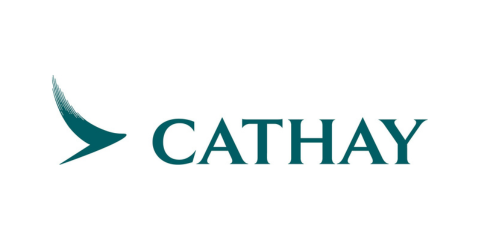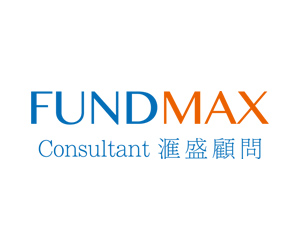Want to be in the loop?
subscribe to
our notification
Business News
FOCUS ON PPP LAW ENFORCEMENT
Many new contents in the recently enacted Law on Investment in Public-Private Partnership Form (PPP Law), such as government support capital, risk sharing mechanism, competitive bidding mechanism and responsibility of governmental agencies, are expected to attract the private sector to join PPP projects and create more opportunities for investors.
Barriers to PPP projects
Dr. Vu Tien Loc, President of the Vietnam Chamber of Commerce and Industry (VCCI), said that the PPP Law was passed by the National Assembly on June 18, 2020 and scheduled to come into effect on January 1, 2021. Infrastructure construction is determined by Vietnam as one of three strategic breakthroughs in the country's socioeconomic development. PPP is considered an important tool for infrastructure development investment. Upgrading the legal framework for PPP from decree to law will create a stronger foundation for implementation of PPP projects.
Besides opportunities, he believed that PPP projects will have many old and new challenges. Firstly, the PPP Law was made in the context of the COVID-19 outbreak, which heavily affected the world, including Vietnam. The second is the incomplete legal system. After the law is enacted, 20 articles in the law will still need guidance for execution and there are still many overlaps among relevant documents. The third is limited resources and capacity of both governmental agencies and PPP investors.
According to Mr. Tran Van The, Vice Chairman of the Board of Directors of Deo Ca Group, the PPP Law was created to increase private investment involvement as the government gives many strong commitments to this effect. However, regulations of the banking industry are very strict, even some credit institutions say no to BOT loans. To strongly engage the private sector, regulations must be made toward one goal. Only an open law is not enough. On the other hand, in fact, commitments made by governmental agencies in the BOT contract are often invalidated without sanctions or binding responsibility, thus posing a lot of risks to investors.
Completing the legal framework
In order to promote PPP investment, VCCI President Loc proposed further improving the legal framework, urgently drafting and promulgating decrees and circulars in accordance with international practices and Vietnamese practices to shape a legal framework for PPP development. Along with that, authorities need to foster the humanity principle of PPP, to ensure that the ultimate goal of projects is working for human goals and putting humans at the center of projects. PPP projects will be also engaged in small projects, not only big ones, so as to quickly revive the economy after the COVID-19 pandemic outbreak.
In addition, government support policies for PPP projects should be feasible. Central and local authorities and agencies need to seriously carry out projects and form an enforceable, methodical and fair financial mechanism, he emphasized.
Regarding funding sources for PPP projects, Ms. Vu Quynh Le, Deputy Director of the Procurement Management Department under the Ministry of Planning and Investment, said that the PPP Law unlocks a fundraising channel in the market, which may be later considered for mobilizing unemployed capital from the public, as suggested by many National Assembly deputies. “Currently, PPP projects are relying too much on bank loans while their loan limits have almost been reached. More funding sources should be taken into consideration rather than only banks. In the past time, some PPP projects have brought profits to investors but some faced difficulty in arranging loan repayment for banks. As a result, banks tend to tighten their loan security.
Regarding the responsibility of fulfilling commitments of competent government agencies, she pointed out that PPP is a contractual relationship. Therefore, right in the contract, it is necessary to clearly define roles and responsibilities of each party and the dispute settlement mechanism if either party fails to fulfill their obligations. Especially, it is important to devise an appropriate risk sharing mechanism for each side. The PPP Law also specifies sanctions, she added. If any damage occurs, compensation must be made and violations must be handled. Most importantly, there is a need for establishing a PPP culture built on compliance with contractual obligations and voluntary equality principles.
A successful PPP project requires many factors, with the prestige and capacity of the Government playing an important role. Dr. Nguyen Hong Thai from University of Transport said, picking a partner with a strong financial capacity, excellent technical and managerial capabilities is essential to the success of a PPP project. In addition, all potential project risks should be identified and appropriately shared. Reasonable financial incentives and steady revenue streams are critical to attracting private investment. He also underlined the need to have a government representative agency responsible for PPP investment, where the private sector contacts and works with to reduce time, effort and downside aspects of direct meetings at different agencies.
Source: VCCI
Related News

VIETNAM’S GDP TO GROW 5.5% THIS YEAR – WB
This forecast is based on the assumption of a moderate recovery in manufacturing exports in 2024, fueled by rebound growth of 8.5% year-on-year in the fourth quarter of 2023 and 17.2% year-on-year in the first quarter of 2024, reflecting strengthening global demand, said Dorsati Madani, senior country economist at the WB in Vietnam.

FARE REFUND FOR VISA REJECTION
Cathay Pacific will offer full refunds for cases of visa rejection to provide you with the confidence to explore the world with ease. If you are planning to fly to a destination that requires an entry visa, you can now book with greater peace of mind.

FOUR COMMODITIES POST Q1 EXPORT VALUE OF OVER 5 BILLION USD
The total export turnover of agricultural, forestry, and fisheries products in the first three months of 2024 is estimated to reach 13.53 billion USD, an increase of 21.8% compared to the same period of 2023.

MOIT PROPOSES SCHEME TO BOOST RENEWABLE ENERGY PROCUREMENT
The proposed Direct Power Purchase Agreement (DDPA) mechanism, outlined in the draft decree, targets organisations and individuals consuming electricity from the 22kV power grid or higher, with a monthly consumption averaging 500,000kWh. However, residential households are excluded from direct procurement.

REAL ESTATE BONDS PLACE PRESSURE ON ISSUING FIRMS
The ministry’s recent report underscores concerns within Vietnam’s corporate bond market for 2023 and 2024. It emphasizes the critical need to address hindrances to the real estate sector in line with the objectives provided in Government Resolution No. 33/NQ-CP, which aims to stabilize the industry.

DA NANG CUSTOMS FOCUSES ON DEVELOPING CUSTOMS-BUSINESS PARTNERSHIPS
Da Nang Customs Department issued an action plan for developing customs-business partnership in 2024. One of the new events this year is the workshop on “Settlement reports for enterprises engaged in outsourcing, export production and export processing” held in Da Nang Customs Department on April 16, 2024.

































